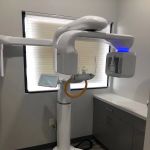Periodontal Disease and Its Impact on Oral Health
When it comes to maintaining optimal oral health, periodontal disease is a serious concern that can have significant long-term effects on your overall health. This chronic condition, which affects the gums and supporting structures of the teeth, can cause discomfort, tooth loss, and even contribute to other health issues. In this article, we will delve into the causes, symptoms, risks, and ways to prevent periodontal disease, so you can take proactive steps to protect your smile and overall well-being.
- Understanding Periodontal Disease
- Symptoms and Signs of Periodontal Disease
- Risks and Complications of Untreated Gum Disease
- Prevention Tips for Maintaining Healthy Gums
- Treatment Options for Periodontal Disease
1. Understanding Periodontal Disease
Periodontal disease, also known as gum disease, is an infection of the tissues that surround and support your teeth. It starts with plaque buildup, which is a sticky film of bacteria that forms on the teeth. When plaque is not removed by regular brushing and flossing, it can harden into tartar, which can only be removed by a dentist. Over time, this plaque and tartar can cause the gums to become inflamed, a condition called gingivitis, which is the earliest stage of gum disease.
If left untreated, gingivitis can progress to a more severe form of gum disease called periodontitis. At this stage, the gums begin to recede from the teeth, creating pockets that become infected. This can lead to bone loss and tooth mobility, ultimately resulting in tooth loss if the disease is not managed properly.
2. Symptoms and Signs of Periodontal Disease
It is essential to recognize the symptoms of periodontal disease early on to prevent further damage. Some common signs include:
- Swollen, red, or bleeding gums, especially when brushing or flossing
- Persistent bad breath (halitosis)
- Receding gums or longer-looking teeth
- Loose or shifting teeth
- Changes in the way your teeth fit together when you bite
If you notice any of these symptoms, it is crucial to see a dentist as soon as possible. Early detection can help prevent the disease from advancing and causing more severe complications.
3. Risks and Complications of Untreated Gum Disease
If periodontal disease is not treated, it can lead to serious health problems. Some of the risks and complications include:
- Tooth loss: As the disease progresses, the bone and tissues supporting the teeth can be destroyed, leading to tooth loss.
- Heart disease: Research has shown that periodontal disease is linked to an increased risk of heart disease, stroke, and diabetes. The bacteria from infected gums can enter the bloodstream and contribute to the formation of plaque in the arteries.
- Respiratory infections: The bacteria from gum disease can be inhaled into the lungs, potentially leading to pneumonia and other respiratory issues.
- Pregnancy complications: Pregnant women with periodontal disease are at higher risk for preterm birth and low birth weight.
4. Prevention Tips for Maintaining Healthy Gums
Prevention is the key to maintaining healthy gums and preventing periodontal disease. Here are some practical tips to keep your gums and teeth in excellent condition:
- Brush regularly: Brush your teeth at least twice a day using a soft-bristled toothbrush and fluoride toothpaste. Pay attention to the gum line, where plaque tends to accumulate.
- Floss daily: Flossing removes plaque and food particles between your teeth and along the gum line, areas that a toothbrush cannot reach.
- Visit your dentist regularly: Regular dental check-ups and cleanings are essential for maintaining good oral health and catching any signs of gum disease early.
- Avoid smoking: Smoking is a major risk factor for periodontal disease and can significantly delay the healing process if you already have gum disease.
- Eat a balanced diet: A diet rich in fruits, vegetables, whole grains, and lean proteins can help strengthen your immune system and promote healthy gums.
5. Treatment Options for Periodontal Disease
If you are diagnosed with periodontal disease, several treatment options are available to help restore your oral health:
- Scaling and root planing: This deep cleaning procedure involves removing plaque and tartar from beneath the gum line and smoothing the tooth roots to promote healing.
- Antibiotics: Your dentist may prescribe topical or oral antibiotics to help control bacterial infections.
- Surgical procedures: In advanced cases, surgical options such as flap surgery or bone grafts may be necessary to restore lost bone and gum tissue.
With the right treatment plan and proper oral hygiene, periodontal disease can be managed and prevented from causing further damage. Don't ignore the early signs, and always prioritize regular dental check-ups.







 Richards & Associates Orthodontics4.0 (228 review)
Richards & Associates Orthodontics4.0 (228 review) Robbinsville Pediatric Dentistry4.0 (306 review)
Robbinsville Pediatric Dentistry4.0 (306 review) NLV Dental Group4.0 (72 review)
NLV Dental Group4.0 (72 review) Eric B Chandler Health Center: Moore Kirk W DDS3.0 (6 review)
Eric B Chandler Health Center: Moore Kirk W DDS3.0 (6 review) OHI Lakewood Health Center (Ocean Health Initiatives, Inc.)2.0 (92 review)
OHI Lakewood Health Center (Ocean Health Initiatives, Inc.)2.0 (92 review) Fawcett Tod R DDS5.0 (9 review)
Fawcett Tod R DDS5.0 (9 review) The Importance of Oral Health Education During Pregnancy for a Healthy Pregnancy
The Importance of Oral Health Education During Pregnancy for a Healthy Pregnancy Best Tips for Brushing Your Teeth Properly for Healthy Gums: Essential Techniques for Oral Health
Best Tips for Brushing Your Teeth Properly for Healthy Gums: Essential Techniques for Oral Health Why Skipping Dental Checkups Can Lead to Bigger Oral Health Problems
Why Skipping Dental Checkups Can Lead to Bigger Oral Health Problems Advantages of Porcelain Dental Restorations
Advantages of Porcelain Dental Restorations How Can Diabetes Cause Tooth and Gum Problems? Preventing and Managing Oral Health Issues
How Can Diabetes Cause Tooth and Gum Problems? Preventing and Managing Oral Health Issues Healthy Habits for Promoting Good Oral Health and Hygiene: Tips for a Healthy Smile
Healthy Habits for Promoting Good Oral Health and Hygiene: Tips for a Healthy Smile